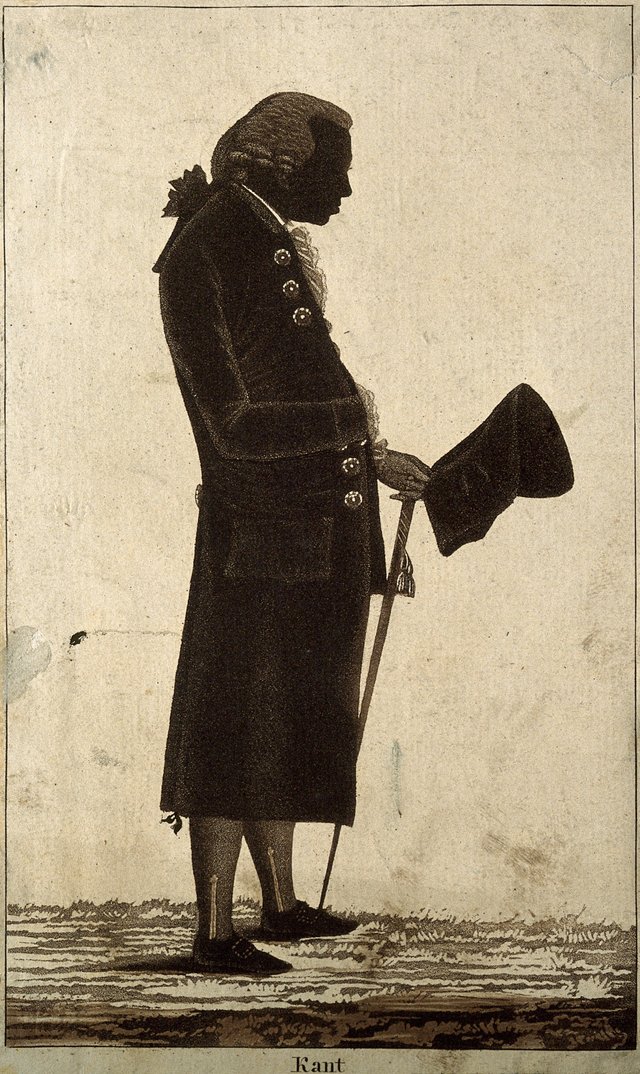
From Prussia, not Germany.
German idealism.
Basically Leibnizian (refer to Chirstian Wolff for further reading).
Reading Hume really made Kant doubt Leibnizian philosophy. He realized that there's something really problematic about the way that Leibniz did his Metaphysics.
Kant's ethics
- Named Deontology (means: has to do with duty - the right way to act is in accordance with your duties)
- Categorical imperative
- Autonomy
- Absolute constraints
Kant thinks that ethics play a big role in trying to determine if we are free. He tries to find out if we act on laws, not strictly based on our desires.
Critique of pure reason
Critique of pure reason is one of Kant's most influential publications.
Note the title. What does he mean with it?
He's critiquing/examining how far pure reason can bring us. That is, pure reason that arises without experience.
This also relates to Leibniz because he is very happy to make metaphysical claims that draw on his tendency to use a priori reasoning.
Hume on the other hand says that there is no reason without experience. Note how ambitious this project really is.
Relevant context
Idealism
- What is it?
- real: exists independent of our mind
- ideal: existence is mind dependent
- Everything that exists is either a mind or dependent on a mind
Kant's view
- Transcendental idealism
- What does Transcendental mean?
- Goes beyond our experience
- Kant: Time & Space
- Are transcendentally ideal
- And empirically real
- What does Transcendental mean?
| Phenomena | Noumena |
|---|---|
| a.k.a appearances, things as they appear to us, things as we experience them, empirical nature, we shouldn't presuppose that things are as they appear to us. | a.k.a. things as they are in themselves, merely intelligible |
| Spatial or temporal, Kant emphasizes that he considers phenomena as real, they're not an illusion, and they're definitely part of reality, PSR / causal determinism [is a precondition for possible experience] | Not spatial or temporal, would have the consequence of causal determinism not being able to exist |
What does Kant mean with time and space being empirically real?
- Based on the way that our perception works, everything we perceive must somehow be structured in this spatial or temporal way.
- We can know the above a priori (it's an objective fact).
Kant has made the claim that time and space don't have any claim to Noumena, as we can only access them in the form of Phenomena.
Visit my Steemit profile for more prose, philosophy essays and tutorials. If you want to know what I'm up to check out my portfolio.